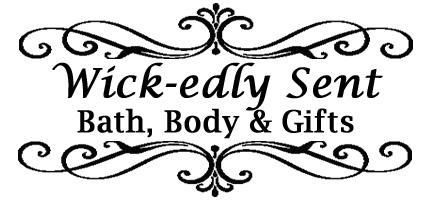I recently did a presentation to a Scientific Group at the Holloway House Restaurant in Bloomfield, NY. The presentation was about the dangers of carcinogens, something that’s found in every day products that people use.

The Holloway House Restaurant
First of all, I am not the type to scare the living daylights to people, and I didn’t want to come off as the natural “know it all”, so I knew this presentation had to be lighthearted (hence the name of this post). I was aware that this group (by their name) knew something about science, and decided to start with a fun quiz. Fun, meaning that mass produced products that we all know have carcinogens and some items that you may think have carcinogens do not.
1. True or False: For instance, Dove Beauty Bar, that’s 99% water but the other 1% includes quaternium 15 and formaldehyde, which are known carcinogens. True.
2. True or False: Johnson’s Baby Shampoo contains carinogens as well as irritants to the skin, eyes, and mucous membranes. True.
Try our pure castile soap, made with 80% Olive Oil and unscented great for babies!
3. True or False: Sodium Laureth Sulfate and Sodium Lauryl Sulftate is high in carcinogens by itself. False. While these are not carcinogens by itself, it is usually teamed up with other ingredients that are (we avoid the two because it is high skin irritant, known to cause hair loss and other bad stuff). We use a coconut based surfactant that lathers up nicely without irritating your skin.
4. True or False: Talcum Powder, Talc, the main ingredient is a carcinogen that increases the risk in ovarian cancer. True. Use corn starch instead. Right now, our company doesn’t make either, but I thought it was good to know this.
5. True or False: Soot from candles is a dangerous carcinogen. False. The soot in candles are not harmful, it is composed primarily of elemental carbon particles and is similar to the soot given off by kitchen toasters and cooking oils. At Wick-edly Sent we offer 100% soy candles (no paraffin or petroleum by products); pure soy candles burn cleaner and better for the environment.
The scientific club was pleased with my presentation. I’d looked at the clock and only twenty minutes had passed–ugh, I thought. Ten more minutes left. I asked if there were any questions and prayed that they wouldn’t have me recite the periodic table. There were quite a few questions, including questionable ingredients in room fresheners, benefits of essential oils and aromatherapy, and one particular warning from a cautious woman that cornstarch powder is bad for yeast infections (oh well, we don’t carry that anyway, I reminded her).
Overall, the presentation went well. I hoped it was good enough and realized that my tension was really unnecessary. Everyone was drinking and having a grand ole’ time. The questions were minimal, they appreciated my presentation and really liked all the samples of soap that I’d given out.
So carcinogens are important in some way. They bring people together, and open doors to small business owners like me, who is somehow a superhero in a world of itchy skin, petroleum by-products, and chemicals that have no business entering your bloodstream.
